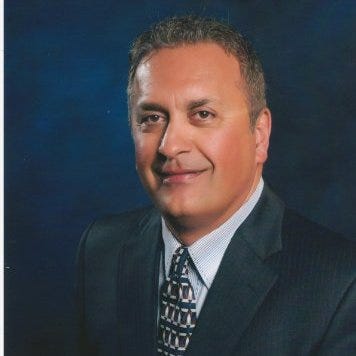Making Contract Manufacturing Work for You
February 2, 2015
|
Barry Kazemi will participate in a panel on outsourcing at MD&M West, in Anaheim, CA, February 10-12, 2015. |
Outsourcing production can be a well-justified decision--potentially resulting in reduced costs in infrastructure and resources, greater efficiencies, and reduced overhead. However, there are important factors to keep in mind along the way.
Barry Kazemi
One thing medical device firms should keep in mind is that many contract manufacturing organizations (CMOs) are diversifying their scope of offerings. And nowadays, many of them offer a combination of services. For instance, a manufacturer might also offer package testing, or a molding house could also provide assembly capabilities. But to gain maximum advantage, OEMs should look to partner with CMOs that provide not just a handful of service offerings but a comprehensive variety of them--in other words, they should look for a one-stop shop. Such organizations can allow device firms to drastically reduce resource costs, speed time to market, and streamline vendor coordination. This approach is especially recommended for startups, as such turnkey contract manufacturers could also help them establish an FDA approved quality system and help them navigate the 510(k) or PMA regulatory pathways.
Device companies shopping for a CMO should ask questions such as the following:
Does the OEM have in-house quality and regulatory functionaries to properly guide the company through regulatory hurdles?
Does the firm's technical staff have the experience to make qualified process decisions once they are in the thick of it?
Do obtaining these capabilities and the costs associated with setting up a cleanroom, hiring, and training production personnel outweigh the option of using a seasoned medical device contract manufacturer?
The relationship formed with full-service CMOs is more of a partnership, as they have a vested interest to see you grow, having partnered with the OEM in the product's infancy. Beyond basic manufacturing capabilities, an OEM should expect the full-contract manufacturer to possess:
A full suite of quality certifications such as ISO 13485, GMP, and 21 CFR Part 820.
A qualified and trusted supplier network.
Certified cleanrooms and warehouse areas.
Additional vertically integrated operations such as packaging and kitting and an in-house engineering team. Some contract manufacturers take it a step further and provide a full turnkey solution with incubator offices, quality system setup and support activities such as packaging validation, sterilization, and validation and fulfillment and distribution services.
Efficient and detailed processes in-place for failure mapping and correction.
Experience. This goes a long way in keeping your medical device product on targeted timelines and reducing downtime through miscues. The startup company will generally have a greater chance of success with the investors and venture capital groups when affiliated with an experienced CMO that has been down the "acquisition road" with previous clients.
Additionally, a good synergy between the OEM and contract manufacturer is essential for a successful relationship. So when choosing a full-service contract medical device manufacturer, OEMs should look for open communication channels, accountability, and traceability of operations. Taking the time to research and choose a CMO that has all these capabilities goes a long way in ensuring quality product and shorter times to market.
In conclusion, if building internal resources is not a financially viable choice or if the OEM is an emerging company, then choosing an experienced full-service medical device contract manufacturer to handle your manufacturing and related activities is recommended. It not only reduces costs and increases efficiencies, but also ensures that the medical device meets and surpasses the high standards set by the FDA and leaves no margin for error.
Kazemi will participate in a panel on outsourcing at MD&M West, in Anaheim, CA, February 10-12, 2015. |
Barry Kazemi is the president and CEO of Life Science Outsourcing Inc. (Brea, CA).
About the Author(s)
You May Also Like


.png?width=300&auto=webp&quality=80&disable=upscale)
